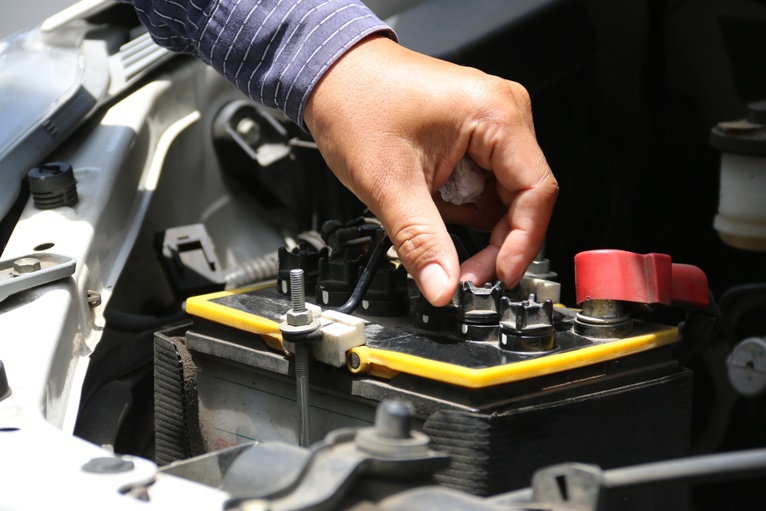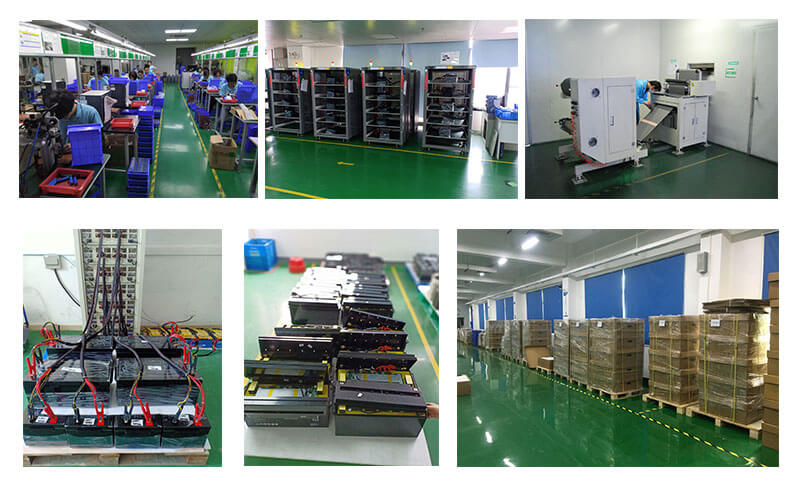Locomotive Starter Battery: Powering Your Train with Reliability
Locomotive starter batteries play a crucial role in the operation of trains. These batteries are responsible for providing the initial power necessary to start the locomotive’s engine. Without a reliable starter battery, trains would not be able to move efficiently and effectively. In this article, we will discuss the importance of locomotive starter batteries, how they work, and the various types of batteries available.
The Importance of Locomotive Starter Batteries
Locomotive starter batteries are an essential component of any train. They provide the initial power required to start the engine, which then powers the entire train. Without a reliable starter battery, trains would not be able to start and run efficiently. The battery also helps to keep the engine running smoothly by providing power to the electrical system when the engine is not running.
How Locomotive Starter Batteries Work
Locomotive starter batteries work by converting chemical energy into electrical energy. They are made up of cells that contain plates made of lead and lead oxide immersed in an electrolyte solution of sulfuric acid and water. When the battery is charged, the lead plates become coated with lead sulfate, which is a form of chemical energy. When the battery is discharged, the lead sulfate is converted back into lead and lead oxide, releasing electrical energy.
Types of Locomotive Starter Batteries
There are several types of locomotive starter batteries available, each with its own unique characteristics and advantages. The most common type of starter battery is the lead-acid battery, which is known for its affordability, reliability, and ability to deliver high bursts of power. Another popular type is the lithium-ion battery, which offers a longer lifespan and faster charging times than lead-acid batteries.

Choosing the Right Locomotive Starter Battery
When choosing a locomotive starter battery, it is important to consider several factors, including the size and voltage of the battery, the type of charger required, and the operating conditions of the train. Additionally, the battery’s capacity should be carefully considered to ensure that it can provide enough power to start the engine and run the train efficiently.
In conclusion, locomotive starter batteries play a vital role in the operation of trains. They provide the initial power required to start the engine, which then powers the entire train. When choosing a starter battery, it is important to consider several factors, including the type of battery, its capacity, and the operating conditions of the train. With a reliable starter battery, trains can run efficiently and effectively for many years to come.
-
 Introduction Powering a boat is crucial for any maritime adventure. Using a reliable energy source is essential to ensure a smooth and enjoyable experience on the water. A cranking marine battery is one such energy source that provides the necessary power to start and run a boat's engine. In this article, we will explore the benefits and features of a...Læs mere
Introduction Powering a boat is crucial for any maritime adventure. Using a reliable energy source is essential to ensure a smooth and enjoyable experience on the water. A cranking marine battery is one such energy source that provides the necessary power to start and run a boat's engine. In this article, we will explore the benefits and features of a...Læs mere -
 As more and more vehicles come equipped with electronic systems, the importance of the starter battery cannot be overstated. Without a functional starter battery, your vehicle is essentially useless. Unfortunately, many car owners have experienced the frustration of a dead starter battery, often due to the battery discharging when the vehicle is not in use for an extended period of...Læs mere
As more and more vehicles come equipped with electronic systems, the importance of the starter battery cannot be overstated. Without a functional starter battery, your vehicle is essentially useless. Unfortunately, many car owners have experienced the frustration of a dead starter battery, often due to the battery discharging when the vehicle is not in use for an extended period of...Læs mere -
 Introduction: In recent years, there has been a growing concern about environmental sustainability and the need for more efficient power solutions across various industries. The forklift industry is no exception, as it plays a vital role in material handling operations. Traditionally, forklifts have been powered by lead-acid batteries, which have several limitations. However, with the advancement in technology, the introduction...Læs mere
Introduction: In recent years, there has been a growing concern about environmental sustainability and the need for more efficient power solutions across various industries. The forklift industry is no exception, as it plays a vital role in material handling operations. Traditionally, forklifts have been powered by lead-acid batteries, which have several limitations. However, with the advancement in technology, the introduction...Læs mere -
 Introduction: In recent years, security monitoring has become an essential part of our daily lives. From residential buildings to commercial establishments, the need for a robust and efficient security system has increased significantly. The advancements in lithium battery technology have played a crucial role in enhancing the capabilities and reliability of security monitoring systems. This article explores the benefits of...Læs mere
Introduction: In recent years, security monitoring has become an essential part of our daily lives. From residential buildings to commercial establishments, the need for a robust and efficient security system has increased significantly. The advancements in lithium battery technology have played a crucial role in enhancing the capabilities and reliability of security monitoring systems. This article explores the benefits of...Læs mere -
 Lithium iron phosphate (LiFePO4) battery cells have become increasingly popular in recent years due to their high energy density, long cycle life, and safety features. These batteries are commonly used in a variety of applications, including electric vehicles, renewable energy storage, and portable electronics. LiFePO4 batteries are made up of several components, including a cathode, an anode, a separator,...Læs mere
Lithium iron phosphate (LiFePO4) battery cells have become increasingly popular in recent years due to their high energy density, long cycle life, and safety features. These batteries are commonly used in a variety of applications, including electric vehicles, renewable energy storage, and portable electronics. LiFePO4 batteries are made up of several components, including a cathode, an anode, a separator,...Læs mere -
 Hvorfor vælge Lifepo4-batteri Lithium-jernfosfat-batteri, almindeligvis kendt som LiFePO4-batteri, også kendt som LFP-batteri ("LFP" står for "lithium-jernfosfat"), er et lithium-ion-batteri med lithiumjernfosfat som det positive elektrodemateriale. Fordi lithiumjernfosfatmaterialet er mere holdbart, sikkert og hurtig opladning, har Lifepo4 batteripakken mindst fem fordele: 1...Læs mere
Hvorfor vælge Lifepo4-batteri Lithium-jernfosfat-batteri, almindeligvis kendt som LiFePO4-batteri, også kendt som LFP-batteri ("LFP" står for "lithium-jernfosfat"), er et lithium-ion-batteri med lithiumjernfosfat som det positive elektrodemateriale. Fordi lithiumjernfosfatmaterialet er mere holdbart, sikkert og hurtig opladning, har Lifepo4 batteripakken mindst fem fordele: 1...Læs mere -
 If you’re looking for a reliable, long-lasting battery to power your devices or equipment, look no further than a 100Ah LiFePO4 lithium battery. This advanced battery technology offers numerous benefits over traditional lead-acid batteries, making it the perfect choice for a wide range of applications. What is a LiFePO4 Lithium Battery? LiFePO4 stands for lithium iron phosphate, which...Læs mere
If you’re looking for a reliable, long-lasting battery to power your devices or equipment, look no further than a 100Ah LiFePO4 lithium battery. This advanced battery technology offers numerous benefits over traditional lead-acid batteries, making it the perfect choice for a wide range of applications. What is a LiFePO4 Lithium Battery? LiFePO4 stands for lithium iron phosphate, which...Læs mere

